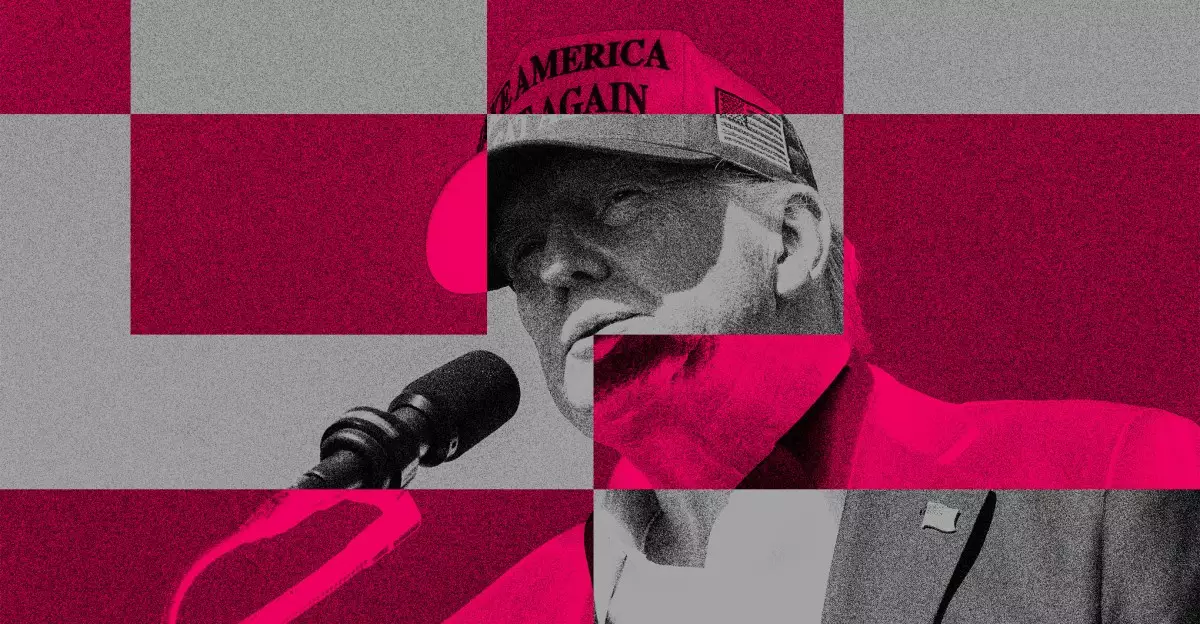In an era where social media transcends mere communication to become a battleground for political dominance, TikTok’s emergence as a strategic tool cannot be underestimated. The Trump administration’s decision to establish its own presence on TikTok—despite unresolved legal and diplomatic controversies—reveals a new paradigm where digital platforms are not just channels but battlegrounds in the larger game of influence. This move underscores a shift: political entities are increasingly leveraging social media not just for engagement, but as instruments of messaging, perception shaping, and even soft power projection. It is a stark warning of how platforms once confined to entertainment now wield the ability to sway public opinion on a national and international level.
Unfinished Business and the Illusion of Power
Despite a clear legal framework drawn up during the Biden administration aimed at forcing ByteDance to divest TikTok’s US operations, the Trump administration’s actions seem disconnected from this legislative momentum. With the September 17 deadline looming, the administration’s creation of an official TikTok account, filled with promotional content, appears more as a symbol of resistance or strategic ambiguity rather than a sign of genuine compliance or resolution. This paradoxical stance—proclaiming opposition yet actively participating—exposes a core inconsistency in the approach to the platform. It raises the question: are political actors simply engaging in tactical moves to maintain influence, or is there an underlying recognition that TikTok’s potential as a communication tool outweighs the unresolved legal issues?
Viral Politics and the Rise of Digital Bullhorns
The efficacy with which Trump and his campaign have harnessed TikTok’s viral nature is a case study in modern political strategizing. Rather than traditional campaign channels, they’ve embraced TikTok’s entertainment-driven ecosystem, transforming it into a platform for messaging, rallying support, and shaping perceptions. The fact that Trump’s campaign account, @TeamTrump, surpassed historic campaign figures in followers and views underscores the platform’s power. It is noteworthy that content crafted with savvy, humor, or viral appeal can outstrip conventional political avenues in reach—especially among younger voters. This approach signals an understanding: social media dominance can translate into real-world political capital, provided it is wielded with sharpness and authenticity, even if ironically.
The Ambiguous Legality and Political Motives of TikTok’s Ban
The ongoing debate surrounding TikTok’s ban reveals more about the broader geopolitical tensions than about the app itself. Critics argue that the ban’s legality is murky, often citing national security concerns while ignoring or downplaying First Amendment issues. The Trump administration’s inconsistent stances—initial attempts at outright bans, delays, and now strategic engagement—highlight a manipulation of legal and diplomatic ambiguity. The platform’s resilience and continued use by political entities suggest that TikTok’s potential as a rallying point exceeds the legal constraints and diplomatic disputes. Instead of eradicating the app, authorities find themselves entangled in a game of strategic ambiguity, where control is elusive, and influence is gained through participation.
The Future of Social Media as Partisan Arsenal
The evolution of TikTok from an entertainment app to a political tool signals a broader lesson: social media platforms are no longer neutral spaces. They are battlegrounds where narratives are crafted and reputations are built or destroyed. The Trump administration’s actions serve as a blueprint for how political figures can exploit these platforms for their own gain—sometimes regardless of legal or diplomatic hurdles. As social media becomes more integral to political campaigns and government communications, the line between genuine engagement and strategic manipulation continues to blur. Future political campaigns are likely to double down on these platforms, turning them into arenas for viral influence, digital diplomacy, and ideological warfare.

